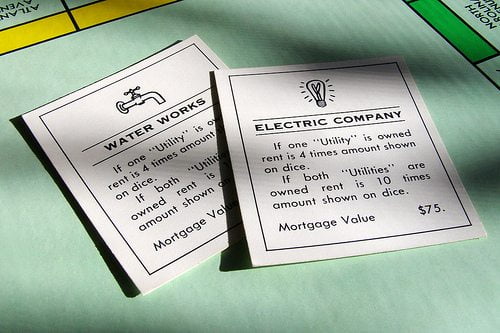

Energy
Comment: ECC Committee Suggests Energy Policy Tinkering will Increase Bills
Commenting on a report by the Energy and Climate Change Committee, on Investor confidence in the UK energy sector, Lord Turner of Ecchinswell said: “It’s fairly obvious that investors look to politicians for a clear and stable policy framework, especially when they are making investments in large projects that can take years to pay off.
“It’s so obvious that one wonders why a select committee has to point this out to the Treasury – but apparently it is necessary, given the continued sense that UK energy policy is drifting aimlessly.
“For bill-payers, the main impact of policy vacillation is extra costs on bills – and if there’s one conclusion we should take away from the Committee’s report it is that lack of policies can in the end cost a lot more than policies themselves.”
The report concludes that a number of recent changes in energy policy, including the Treasury’s scrapping of the Zero-Carbon Homes programme and removal of the Climate Change Levy exemption for low-carbon generators, and DECC’s substantial changes to support for renewables, were made too abruptly and with a lack of transparency. The Committee concludes that “policy inconsistency and contradictory approaches have sent mixed messages to the investment community”, and that the lack of a long-term vision makes investments riskier, and that there is a policy “cliff-edge” in 2020, with no clarity about support measures thereafter.
Richard Black, director of the Energy and Climate Intelligence Unit (ECIU) said: “This report pulls no punches in setting out the extent to which recent abrupt changes in energy policy have spooked investors, so putting an upwards pressure on bills.
“It’s interesting that critical evidence given to the Committee came from some of the biggest investment houses, such as Schroders, as well as from people in the renewables industry – and interesting too that the Committee points its finger squarely at Treasury.
“One investment firm puts the cost of policy tinkering at £3.14bn per year, which, if it were applied only to domestic consumers, would add as much as £120 per year to the average household bill.
“However, the Government has a couple of ideal opportunities ahead to build confidence, by setting out support measures for the period 2020-25 clearly in this month’s Budget, and agreeing a strong Fifth Carbon Budget.”
The £3.14 billion figure was provided by Octopus Investments, based on their assessment of how an increased risk premium could affect UK investment costs. These costs, equating to approximately £120 per household per year, would ultimately be passed onto the end consumer, canceling out any savings generated by cuts to energy efficiency and climate change policies, including support for renewable energy (£112 per household in 2013).


 Environment12 months ago
Environment12 months agoAre Polymer Banknotes: an Eco-Friendly Trend or a Groundswell?

 Features11 months ago
Features11 months agoEco-Friendly Cryptocurrencies: Sustainable Investment Choices

 Features12 months ago
Features12 months agoEco-Friendly Crypto Traders Must Find the Right Exchange

 Energy11 months ago
Energy11 months agoThe Growing Role of Solar Panels in Ireland’s Energy Future





























